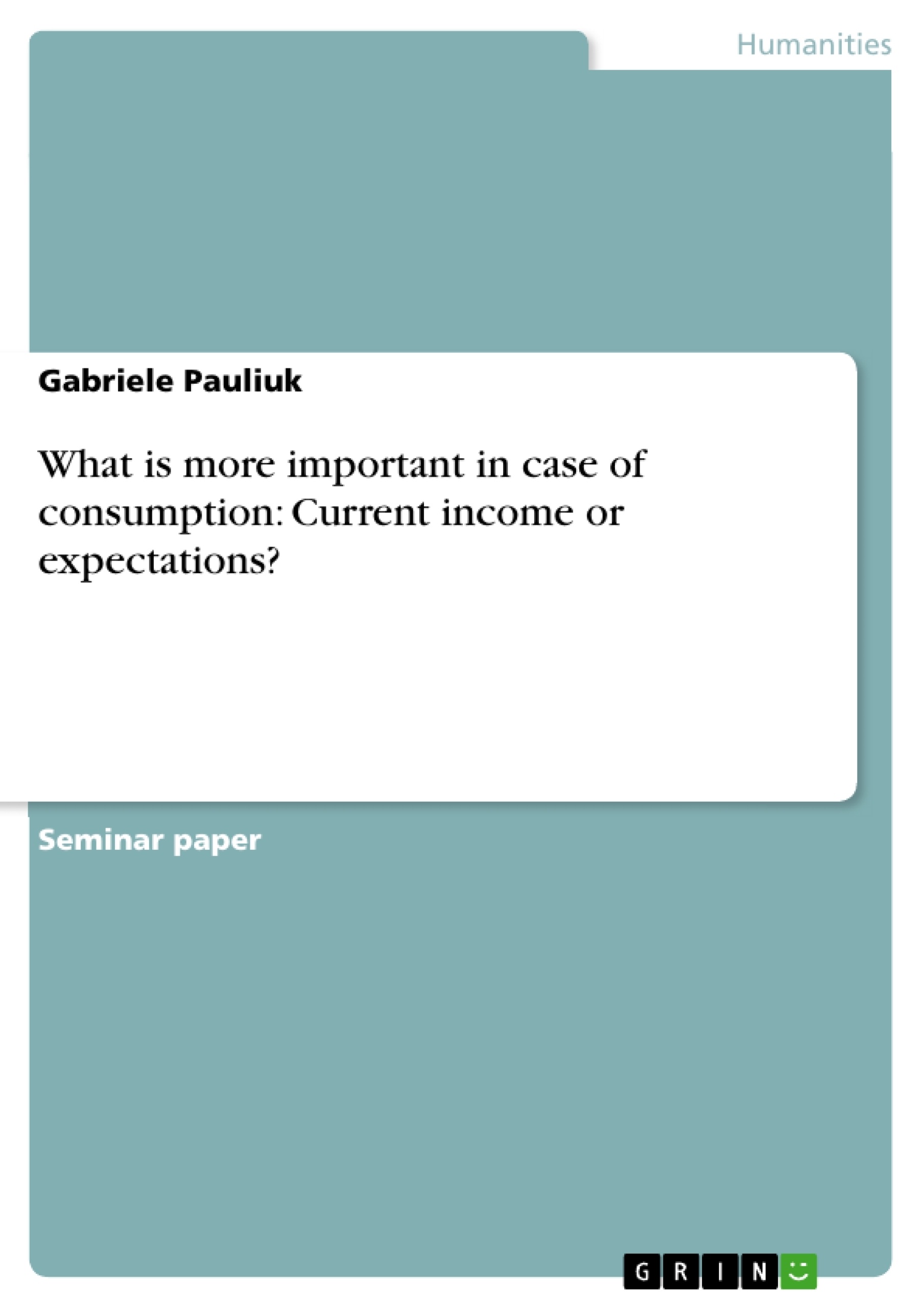The main goal of this paper will be to determine which of the two is more important in case of consumption. First of all, a theoretical analysis of the possible explanations of each relationship based on the existing literature will be presented. Then the research will proceed to the empirical tests (correlation and regression using SPSS Statistics software) of a created model based on consumption, gross national income as well as length of retirement in the United States and the United Kingdom over the period of 46 years. The piece will finalise with some general conclusions that can be drawn from the conducted research.
Consumer behaviour is a subject of interest to many different players in the economy. Companies gather information on their current and potential customers to determine their selling and production strategies based on what their target customers might want, need, the timing at which to introduce new products, the prices to suit their tastes etc. Governments use the information on their citizens’ spending habits to figure out what policies to implement to receive effective results and garner political support for re-election. People themselves should be acquainted with the subject of consumer behaviour to better understand and use personal spending under different political, economic and social circumstances to lead more stable lives. Because of the immense interest in the subject of consumption many efforts have been put into research to distinguish the most important factors that influence consumer behaviour and so far much of such literature has been dedicated to the influence of current income and expectations (specifically expectations about future income).
Inhaltsverzeichnis (Table of Contents)
- Theoretical analysis
- Current Income Influence on Consumption
- Future Income Influence on Consumption
- Expectations for Future Income
- Net Worth and Consumption
- Uncertainty Influence on Consumption
- Mix and Match
- Empirical analysis methods
- Empirical analysis
- Empirical results from the U.S. data.
- Conclusions
Zielsetzung und Themenschwerpunkte (Objectives and Key Themes)
This paper aims to determine the relative importance of current income and expectations, specifically expectations about future income, in influencing consumer behavior. It will accomplish this through a theoretical analysis based on existing literature, followed by empirical tests using data from the United States and the United Kingdom.
- The influence of current income on consumption
- The role of expectations about future income in consumption decisions
- The impact of net worth and uncertainty on consumption
- Empirical analysis of consumption patterns in the United States and the United Kingdom
- Comparison of the Life Cycle Model (LCM) and Permanent Income Hypothesis (PIH)
Zusammenfassung der Kapitel (Chapter Summaries)
- The theoretical analysis chapter provides an overview of existing literature on the relationship between consumption and current/future income, exploring arguments for and against the importance of each. It delves into the Life Cycle Model and Permanent Income Hypothesis, providing a framework for the empirical study.
- The empirical analysis methods chapter details the approach taken to test the model. It outlines the specific statistical techniques used, including correlation and regression analysis, and the data sources employed.
- The chapter on empirical results from U.S. data presents the findings of the study. This chapter will delve into the data and analysis, highlighting significant findings and exploring the relationship between consumption and income factors.
Schlüsselwörter (Keywords)
Key terms and concepts explored in this work include consumer behavior, current income, future income expectations, Life Cycle Model, Permanent Income Hypothesis, empirical analysis, correlation, regression, U.S. and UK consumption data, and net worth.
Frequently Asked Questions
Does current income or future expectation drive consumption?
The paper analyzes both factors, comparing theories like the Life Cycle Model and Permanent Income Hypothesis to see which has a stronger empirical impact.
What is the Permanent Income Hypothesis (PIH)?
The PIH suggests that people base their consumption on their expected long-term average income rather than their current transitory income.
How does uncertainty affect spending habits?
Uncertainty about future income or economic stability often leads to "precautionary saving," causing consumers to reduce their current spending.
Which countries are analyzed in the empirical study?
The research conducts empirical tests using data from the United States and the United Kingdom over a period of 46 years.
What role does net worth play in consumption?
A consumer's total wealth (net worth) acts as a buffer and can influence spending patterns independently of monthly or yearly income levels.
- Citar trabajo
- Gabriele Pauliuk (Autor), 2014, What is more important in case of consumption: Current income or expectations?, Múnich, GRIN Verlag, https://www.grin.com/document/996479



